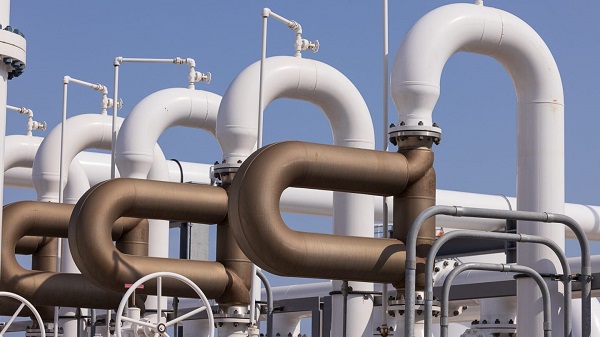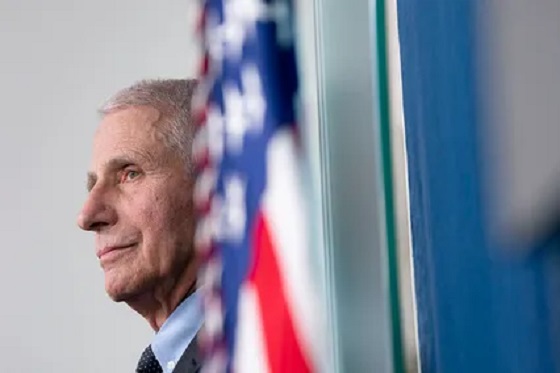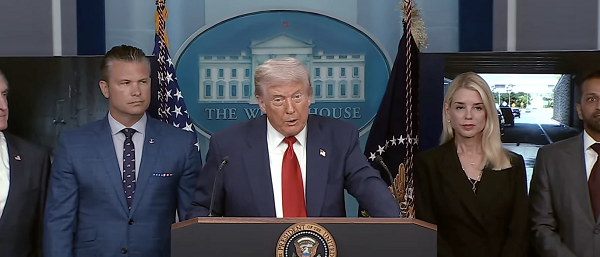Alberta
Immigration crisis demands immediate action! Alberta Immigration Minister Joseph Schow

Minister of Jobs, Economy, Trade and Immigration Joseph Schow issued the following statement on Ottawa’s loss of control over immigration:
“The federal government has lost control of sustainable immigration in Canada. Despite promises from Prime Minister Mark Carney to restore sustainable levels, Canada is on pace to receive more than one million new temporary and permanent immigrants this year, not including the almost three million temporary residents already in the country.
“Each year, the federal government sets immigration targets while provincial governments are responsible for the majority of supports including health care, housing and education. Unfortunately, the decisions regarding immigration targets are often made without proper consideration of provincial needs or priorities. When it comes to immigration, Albertans simply want transparency, honesty and sustainability, all of which have been lost under this federal government.
“At the same time, it is estimated that there are up to 500,000 illegal immigrants currently spread across Canada, all of whom are benefiting from taxpayer-funded services. As the federal government determines immigration targets for next year, these illegal migrants are not being accounted for. This means that the numbers being reported to Canadians are inaccurate. These illegal migrants must be taken into account, as every province is feeling the pressure of Ottawa’s mismanagement of the immigration system.
“Alberta has led the country in population growth rates, increasing by 4.36 per cent last year, ahead of Ontario at 3.21 per cent and B.C. at 3.02 per cent. Most of that growth has come from international migration, along with the highest levels of interprovincial migration in Canada. Employment, housing, health care and other public services are under pressure due to Canada’s open border policy, and the strain will only get worse if immigration is not brought under control.
“As Prime Minister Carney admitted in April, ‘the system isn’t working.’ He must keep his promise to cap immigration and fix the system. Nowhere is the strain more obvious than in Alberta, where record population growth is being felt in communities provincewide. It is time to regain control of our borders, protect the services Canadians rely on, and restore trust in our immigration system.”
Quick facts
- Alberta’s population growth in 2023-2024 led the country for the second year in a row at a rate of 4.36 per cent.
- Net international migration was the primary contributor to population growth in 2023-24, accounting for 71.2 per cent of the provincial absolute growth.
In 2023-24, Alberta was among the only provinces to see growth through interprovincial migration.
- 43,750 people moved to Alberta from other provinces in 2023-24.
- The only other provinces to see growth through interprovincial migration in 2023-24 were New Brunswick (2,803) and Nova Scotia (2,252).
- All other provinces saw decreases in interprovincial migration.
- Between July 1, 2023 and June 30, 2024, Alberta’s population grew by 145,395 people through international migration.
- This is an increase from the prior year’s growth of 119,699 people through international migration.
Related information
Alberta
Will Carney’s Dazed & Confused Trade War Performance Target Canada’s Oil & Gas Industry?

From Energy Now
By Jim Warren
At first, the elbows up chicken dancers at Carney election rallies seemed harmless enough.
Post-election, they’ve become a menace.
The problem is being a patriotic chicken dancer does not mean one is also well informed about the fundamentals of economics and international trade. This partly explains why yesterday’s chicken dancers have become today’s cheerleaders for Ontario Premier Doug Ford and his plans for combating the Trump tariffs.
Ford supports a “get tough on the Americans” Team Canada response to our tariff problems. He imagines a pan-Canadian flourishing of hard-nosed patriotism whereby we punish the US with counter-tariffs and export taxes.
Ford wants us to pull together as flag waving Canadians and kick American butt, no matter how much it hurts us. Of particular concern to people from Alberta and Saskatchewan is eastern Canada’s fixation on applying export taxes on oil potash and uranium.
Ford’s approach amounts to a willingness to endure self-inflicted wounds to show the Americans we mean business. Come on patriots, circle the wagons and shoot in. Let the Americans know if they don’t eliminate those dastardly tariffs we will punch ourselves in the face some more. That’ll show ‘em.
Take potash for instance, food guru Sylvain Charlebois among other Eastern pundits has alerted us to the problems Canada could create for US agriculture by imposing punitive export taxes on Saskatchewan potash. That would indeed present a serious problem for American farmers, but not for long.
Prior to Putin’s invasion of Ukraine, Russia and its ally Belarus vied with Saskatchewan for the title “world’s largest potash producer”. Saskatchewan’s potash industry has done relatively well following the imposition of international sanctions on Russia and Belarus over their unprovoked aggression against Ukraine. (Belarus allowed Putin to assemble invasion forces on its territory.)
But guess what? Just as soon as we put an export tax on potash, Trump can be expected to waive the sanctions on Russia and Belarus and ensure US farmers aren’t starved for fertilizer. Conceivably it could take years for Saskatchewan producers to win back their American customers. Export taxes are a threat to the well-being of your own exporters—not merely a way to irritate your opponent in a trade war.
It is less likely, but possible, a similar fate would await Western Canada’s petroleum sector if export taxes were applied to the oil we sell to the U.S. It seems eminently plausible that if we taxed oil exports Trump would be tempted to seek out alternative sources in the international marketplace. Would he entertain removing sanctions on Russian oil for example? Admittedly, it would be a difficult problem for Americans to deal with.
But are Ford, his Team Canada cheerleaders and the federal government crazy enough to put oil revenues at risk? Crude oil remains the single most valuable commodity we export. Why would sane people put those revenues at risk? Unfortunately, after 10 years of Liberal government we have learned that when environmental zealots are in office they will happily sacrifice economic growth, jobs and prosperity on behalf of combating climate change.
It is easy for Doug Ford and the “patriots” to chicken dance to their hearts’ content if the cost of getting tough on the US is borne by oil, gas, potash and uranium producers from Saskatchewan and Alberta.
Tariff problems affecting the prairies took a turn for the worse on August 11 when China placed a 75% tariff on Canadian canola. Canada exports about $5 billion worth of canola in seed form, oil and meal to China. Saskatchewan and Alberta account for over three quarters of those exports.
Provincial politicians from the West have called on the prime minister to fast track discussions with China to resolve the dispute. China claims the new tariff is a reaction to Canada dumping canola produced by subsidized farmers. That’s a total fiction. The real reason is retaliation for the 100% tariff the Trudeau Liberals applied to Chinese EVs.
The Government of Canada, Canadian automakers and EV battery manufacturers have invested billions in developing the capacity to manufacture batteries (often unsuccessfully) and retooling assembly lines at auto plants.
Chinese government subsidies have been in large measure responsible for the incredible advances in Chinese EV technology. Chinese EVs are more technologically sophisticated, more energy efficient and far less expensive than EVs produced in Europe and North America—little wonder car makers in those regions have demanded their governments impose stiff tariffs on Chinese EV imports.
It’s clear that the Team Canada approach to fighting tariffs has run into a couple of significant snags. Teams Ontario and Quebec would be pleased to see export taxes applied to Western oil, gas, potash and uranium. The West will never agree to this.
At the same time prairie farmers would like to see the tariffs on Chinese EVs reduced or eliminated. Ontario and its thousands of auto workers can’t let that happen.
We can therefore expect to see a collapse in pan-Canadian cooperation.
It doesn’t require deep insight to predict who the winners and losers will eventually be. The Liberal government showed its hand several weeks ago when it passed legislation guaranteeing supply management for dairy and poultry farmers would never become a bargaining chip in trade negotiations. Supply management is a sacred institution in Quebec. La Belle Province has by far the most dairy farmers per capita of any province. Protecting those farmers is one of Quebec’s perennial demands.
As it happens, one of Donald Trump’s principal irritants when it comes to trading with Canada is the supply management system. He has identified it as one of the reasons he’s getting tough on trade with Canada.
When it comes to a prairies versus Ontario and/or Quebec quarrel, Westerners only rarely win.
It’s a Liberal tradition, keep the voters in Ontario and Quebec as happy as possible. So what if the West gets annoyed—they have no power in parliament. That’s why Liberal elections strategy is based on the maxim “Screw the West, we’ll take the rest.”
Alberta
Albertans simply want a fair shake in the federation
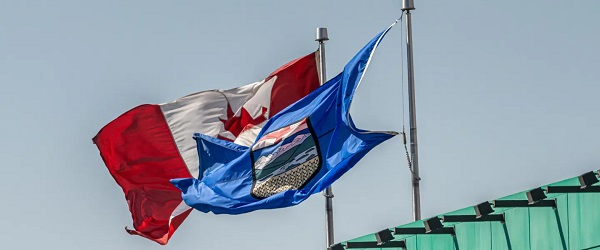
From the Fraser Institute
By Tegan Hill and Nathaniel Li
As the Alberta Next Panel—tasked with advising the Smith government on how the province can better protect its interests and defend its economy—prepares to reconvene on August 14, one thing is clear: many Albertans feel they’re treated unfairly in the federation. But if the rest of Canada understands and respond to Albertans’ concerns, it could lead to a stronger Canada for everyone.
Under the current system of fiscal federalism, Ottawa collects taxes then redistributes money to the provinces and/or individual Canadians through programs including equalization, the Canada Pension Plan (CPP) and employment insurance (EI). Albertans make outsized contributions to these programs because the province has a relatively young population, fewer retirees, higher incomes and higher employment rates.
For perspective, from 2007 to 2022, Albertans’ net contribution to federal finances (total federal taxes paid by Albertans minus federal money spent or transferred to Albertans) was $244.6 billion—more than five times the net contribution from British Columbians or Ontarians (the only other two net contributors).
Consider Alberta’s role in the equalization program, which redistributes money to theoretically ensure each province can provide comparable levels of public services at comparable tax levels. In 2023, the federal government spent $24.0 billion including an estimated $3.3 billion from Alberta, which has not received equalization payments since 1964/65.
Albertans’ also disproportionately contribute to the CPP. From 1981 to 2022, the amount Albertans paid into the program—over and above what retirees in Alberta received in CPP payments—was $53.6 billion. That’s approximately six times greater than the net contribution of B.C., the only other net contributing province. Put differently, residents in seven out of the nine provinces that participate in the CPP (Quebec has its own plan) receive more in benefits than they contribute to the program.
And from 1981 to 2023, Alberta workers contributed $23.9 billion more to Canada’s EI program than Albertans received back in EI benefits. (Ontario was the only province to make a larger net contributor to the program.)
In their current form, both the CPP and EI rely heavily on contributions from Albertans. Alberta’s withdrawal would necessitate fundamental changes to these programs including higher contribution rates (i.e. taxes) and potentially reduced benefits for Canadians in other provinces.
Clearly, Albertans make an outsized contribution to the federation—but that, in itself, isn’t the issue. Here’s the problem—at the same time, federal policies disproportionately and negatively impact the province including Bill C-69 (the “no pipelines act,” which imposes onerous review requirements on major energy projects including pipelines), an oil tanker ban limiting energy exports to Asian markets off B.C.’s northern coast, an arbitrary cap on oil and gas emissions that will require production cuts while most of our international peers ramp up production, numerous “net-zero” policies, and so on.
These policies prevent Alberta from reaching its full economic potential. According to estimates from a 2024 Deloitte report commissioned by the Alberta government, due to the federal emissions cap, Alberta’s economy (GDP, inflation-adjusted) will be $191 billion smaller from 2030 to 2040, and result in lower wages, job losses and a decline in tax revenue. Ironically, this also means less revenues for Ottawa. The same report estimates the emissions cap will shrink Canada’s economy by more than $280 billion over the same 10-year period. In other words, these federal policies have consequences for not only Albertans but all Canadians.
The Alberta Next Panel presents an opportunity. If Canadians outside Alberta can better understand the province’s important role in the federation, it could lead to undoing the damaging federal policies that limit Alberta’s energy sector, which would ultimately benefit Canadians across the country.
-
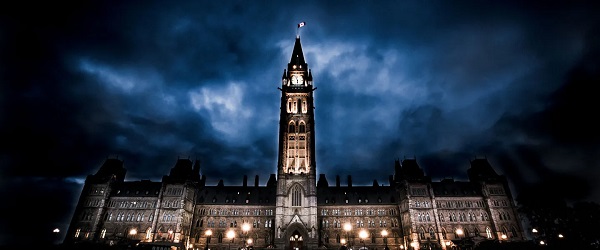
 Business2 days ago
Business2 days agoClosing the economic and fiscal books on the Trudeau era
-

 Business2 days ago
Business2 days agoESG: The Use of Non-Financial Metrics by the Investment Industry is a Lawsuit Waiting to Happen
-

 Business2 days ago
Business2 days agoCarney dropped the ball on tariffs
-

 Opinion2 days ago
Opinion2 days agoLouisiana AG alleges popular gaming site Roblox is overrun with ‘child predators’ in lawsuit
-

 International1 day ago
International1 day agoPutin Claims Ukraine War Wouldn’t Have Started If Trump Were President Instead Of Biden
-

 International1 day ago
International1 day agoTrump Says Putin, Zelenskyy To Meet Following Alaska Summit
-

 International1 day ago
International1 day agoTrump greets Putin under thunder of a B-2 bomber
-
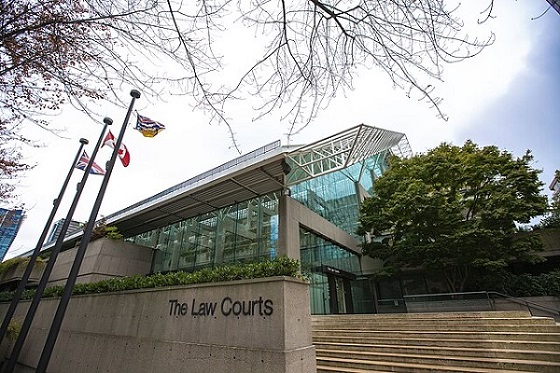
 Aristotle Foundation19 hours ago
Aristotle Foundation19 hours agoB.C. Supreme Court takes an axe to private property rights



